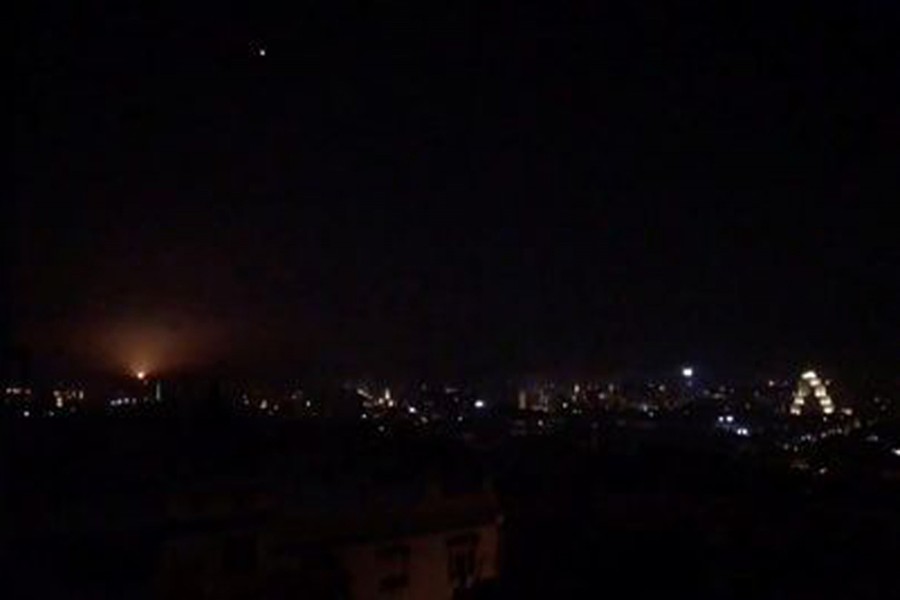Israeli fighter jets struck Iranian Quds targets inside Syria on Monday and, after coming under fire from anti-aircraft missiles, struck Syrian defence batteries as well, the Israeli military said.
Syrian state media cited a Syrian military source as saying Israel launched an “intense attack through consecutive waves of guided missiles”, but that Syrian air defences destroyed most of the “hostile targets”.
Witnesses in Damascus said loud explosions rang out in the night sky for nearly an hour.
Israel’s military said its aerial bombardment targeted “Iranian Quds military sites in Syria”, including munition storage sites and a site located in the Damascus International Airport, along with an Iranian intelligence site and an Iranian military training camp.
“During the strike, dozens of Syrian surface-to-air missiles were launched, despite clear warnings to avoid such fire. In response, several of the Syrian Armed Forces’ aerial defense batteries were targeted,” the military said in a statement.
The Quds Force is in charge of Iran’s Revolutionary Guards’ overseas operations.
Monday’s overnight strikes followed cross-border attacks on Sunday in which Syria said it repelled an Israeli air attack. Israel said it intercepted a rocket fired at the Golan Heights.
“We have a permanent policy, to strike at the Iranian entrenchment in Syria and hurt whoever tries to hurt us,” Israeli Prime Minister Benjamin Netanyahu said earlier, Reuters reported.
The Israeli army said a popular ski site on Mount Hermon in the Israeli-controlled Golan Heights would be shut for the day. It added that otherwise things remained “routine” along the frontier with Syria.
Netanyahu last week acknowledged an Israeli attack on what he called an Iranian arms cache in Syria, where Tehran provides Damascus with vital support.
He told his cabinet Israel had carried out “hundreds” of attacks over the past years of Syria’s war to curtail Iran and its ally, Lebanon’s Hezbollah.
Usually silent about its attacks on Iranian targets near its frontier, Israel has lifted the veil this month, a sign of confidence in a campaign waged amid occasional tensions with Syria’s big-power backer, Russia.


